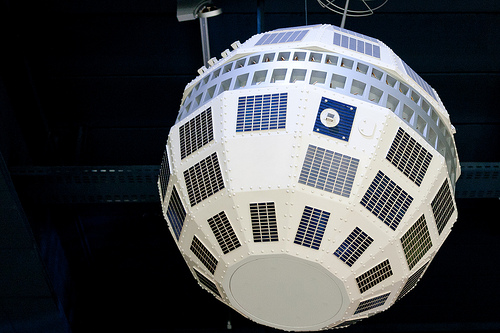Facebook may come-off as an opportunistic tech overlord trying to make itself the homepage of the world with Internet.org, but it’s often impossible to deny the overall benefit of its low-cost connectivity drive and the determination with which it pursues it, especially in Africa.
In a partnership announced earlier today, Facebook, along with Eutelsat communications, a French satellite communications operator, will use satellite technologies to get more Africans online, “under a multi-year agreement with Spacecom”.
Both companies will use the entire broadband payload on the future AMOS-6 satellite and will build a dedicated system comprising satellite capacity, gateways and terminals, according to an Eutelsat media release.
The AMOS-6 geostationary satellite, according to Eutelsat, is configured with high gain spot beams covering large parts of West, East and Southern Africa and the capacity is optimised for community and direct link up by users via affordable, off-the-shelf customer equipment. The satellite is currently being built and is scheduled to launch by yearend 2015, according to a ComputerWorld report.
The satellite will reportedly link terminals in Africa to dedicated internet gateways in France, Italy and Israel.
For Facebook, this initiative is in addition to its other affordable internet connectivity drives in Africa.
Two years ago, it launched Internet.org, which it expanded to Africa in 2014, starting from Zambia The program has received free-handed backlash across the world, especially in India, where the debate have been notably been hottest regarding how Internet.org undermines net neutrality by providing zero-rated access to a select gated web experiences.
But it’s impossible take away the impact of Facebook’s internet.org (Now Free Basics)
“We haven’t necessarily heard a lot from the operators, though, who are benefiting from Facebook’s investment. Overall, Internet.org is striving to do the right thing, which is to accelerate the adoption of the mobile web to people who don’t today have access,” Patrick Moorhead, an analyst with Moor Insights & Strategy told computer world few weeks ago.
About two weeks ago, Facebook renamed the service to Free Basics by Facebook, but with the same functionality as before. According to Facebook, this change was to “better distinguish the Internet.org initiative from the programs and services we’re providing, including Free Basics”.
Back in March, Facebook also announced its Aquila program; high-flying WiFi-bearing drones that will help it connect 5 billion more people to internet.
This latest move is also seen as Facebook providing its own infrastructure for Free Basics, in Africa where fiber backbone is still limited.
Google is also in the drive to bring affordable internet to previously unconnected population. It’s doing so with its high-powered WiFi balloons – Google Loon – and low cost Project Link that is creating a Fiber infrastructure for developing cities. Last week, it rolled out the Project LInk in Ghana after 2 years in Uganda.
Photo Credit: Milestoned via Compfight cc















